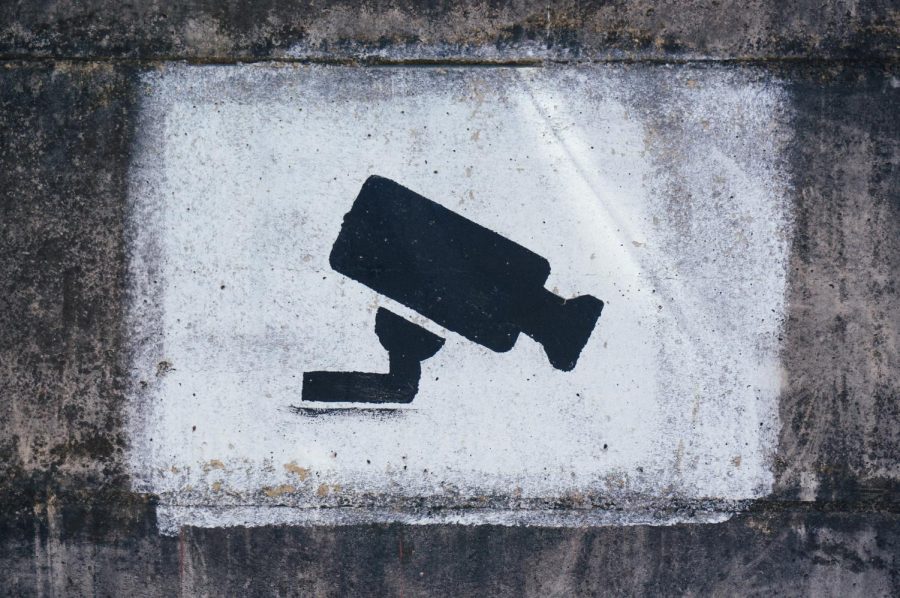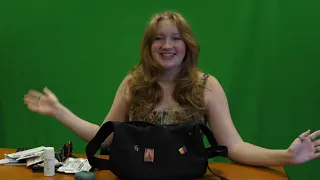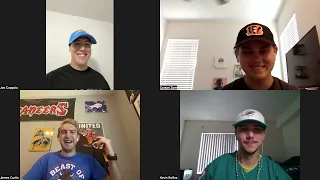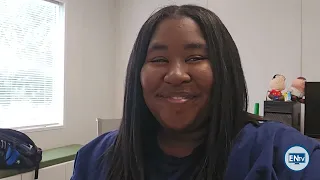FGCU Student Launches Petition for Cameras in Student Housing Parking Lots after Car-keying Scare
February 19, 2021
Within the last few weeks, social media posts from FGCU students have circulated urging women to be alert after cars were keyed with Xs in FGCU student housing parking lots. Students are fearful from the social media posts that the Xs are targeting women’s vehicles for sex trafficking.
FGCU sophomore, Ashley Barron, recently started a petition to put cameras in student housing on and off campus.
“As of right now, we are 80 signatures shy of being 1000, which means so many voices are being heard just by one signature,” Barron wrote in an email.
Barron’s car got keyed in the parking lot by her on-campus apartment on February 9th.
“In the spot that I parked on my on-campus apartment, if there were cameras, it might’ve been prevented,” Barron wrote in an email.
Other FGCU students have also seen their cars marked with an X . On February 2nd, a student parked her car in the parking lot next to garage 2 and came back to find two Xs keyed on it, according to an email from FGCU Chief of Police, Steven Moore.
Lee County Sheriff’s Office previously took a report of a vehicle at University Village that had an X on the hood of the vehicle on January 21st. The deputy on duty found two other vehicles with similar damage when he surveyed the parking lot that day, according to an email sent to FGCU students and staff from Chief Moore on February 5th. All of the cars had sorority decals but belonged to different sororities.
“My roommates and I have been working nonstop on trying to hear everyone’s voices and create change where it’s needed,” said Barron.
In the caption for her petition, Barron wrote, “University Village, Coastal, the Reef, West Lake Village, and North Lake Village should have cameras, especially in their parking lots and buildings. Someone should not be able to go up to cars and damage them with no repercussions or evidence.”
FGCU student Jessalyn Hubbard, signed the petition to put cameras in student housing parking lots.
“Ideally, I am hoping that this petition brings our school to take action ASAP before it’s too late. We need more cameras, and this goes for the neighboring apartment communities too,” Hubbard said in an email. “I am currently advocating for West Lake to get some, because this is where I live, and this is where one of my friends had an X keyed into her car. I have to walk to my best friend’s building ONE building away with a taser and pepper spray while they watch me walk home at night because I don’t feel comfortable alone.”
FGCU Police Captain, Anthony Rispoli, said on a phone call that while there are cameras in the parking garage at South Village dorms, there aren’t cameras in the parking lots at the North Lake dorms because it wasn’t part of the design plan when the parking lots were built about 20 years ago.
When North Lake was built, cameras in the parking lots weren’t in the design plan because it wasn’t common at the time to have cameras in parking lots, said Officer Rispoli. There are cameras in Parking Garage B in SoVi because it was part of the design plan.
Parking Garage B has more cameras than the other parking garages on campus because it is used by FGCU students 24/7 throughout most of the year. The other parking garages on campus have cameras pointing at the elevators, up the stairwells, and the entrance and exit, said Officer Rispoli.
The parking garages on campus close at midnight and the lights automatically shut down, so there aren’t as many cameras as there are in Parking Garage B. These precautions were built in from the very beginning, said Officer Rispoli. With new construction, cameras and technology are more readily available and typically being built in from the start.
UPD is able to investigate criminal mischief more often, such as the Xs keyed onto cars, when the occurrences are reported within a small window of time versus a large window of time, said Officer Rispoli.
UPD and Lee County Sheriff’s Office are unaware of the keyed Xs being a continuing situation, said Officer Rispoli. The occurrences appeared to happen at the same time as one continuous incident.
There have been sprees of criminal mischief on campus before, Officer Rispoli said.
“We’ve had here in the past, here on campus, where we did have a spree of criminal mischief. Where it’s like, several cars in one night were vandalized. Whether it was scratched, or antennas broken, or, you know, windshield wipers snapped off, or sideview mirrors knocked off, and you go around and find four or five or six cars,” said Officer Rispoli. “And then the next day, you find two or three more people may come in that we didn’t see that night as people make their way back to their car… It would be like all different, random people, as opposed to, ‘Hey! All of these things lined up like we talked about, FGCU… Female… Sorority’…”
Officer Rispoli said that when a lot of damage happens to one vehicle, it appears like it was targeted and that person most likely knows they’re having an issue with somebody or something.
UPD is in contact with the Lee County Sheriff’s Department. Up to this point, UPD has about five cars documented with similar vandalization, said Officer Rispoli. As far as UPD is aware of, there have not been more.
Many people were upset by the social media posts linking the car-keying to sex trafficking. “We tried telling people, ‘Hey, we can’t make that connection.’ It isn’t that we decided on our own, ‘Well, that’s not what that means,’” Officer Rispoli said. “We did reach out to Southwest Florida Coalition Against Human Trafficking, and, matter of fact, we have someone that’s working with us right now to try to put on some training in the next month or so, or provide some training at least to Greek life and then maybe can extend that to everybody else.”
Rispoli said he is aware of people being very upset when Chief Moore used the phrase “myth or urban legend” in an email sent to FGCU students and staff to describe the sex trafficking social media posts were saying was tied to the car keying. That was the phrase the Southwest Florida Coalition Against Human Trafficking used when talking to UPD. The link is a myth, things like that have circulated in the past.
“That’s what they called it, and they were the experts… We didn’t use [that term] to try to discount anybody’s fears or anything like that,” Rispoli said. “That’s not how people get involved with human trafficking.”
The Southwest Florida Coalition against Human Trafficking hasn’t seen a connection since they’ve been involved in their work as an organization, said Officer Rispoli.
UPD has also reached out to a task force on the state level, and was told that by what they have seen, there’s no connection to cars being marked and human trafficking.
“We’re being told by the experts that that’s not what that means,” said Officer Rispoli. “We’re not investigating human trafficking. But what we are investigating is the criminal mischief.”
UPD has been walking around more and documenting people that seem out of place. Just in case they run across something later, they already have that person’s information, said Officer Rispoli.
With fears yet circulating around campus due to the rumours from the social media posts, FGCU students are proactive in creating a sense of safety for themselves and their peers.
Sigma Chi, a fraternity at FGCU, launched an initiative February 11th called, “Walk Her Home” to provide women living on campus and off campus housing with an opportunity to call on a fraternity member to walk them home from their cars if they feel unsafe.
“I know that if any of [my own sisters] had similar fears of what of our fellow students at FGCU are feeling, I would hope that they had someone that they would be able to call on, to walk them home, or to be able to take care of them,” said Ian Scott, the fraternity member who had the initial idea of starting “Walk Her Home.”
“For me, it was especially important that we can put these people into contact with someone that they know is safe and who they can trust to walk them home,” he said.








































anonymous • Mar 11, 2023 at 10:54 pm
my car was keed in the walgreens of daniels, by a woman in a black beatup hunday or kia. I drive a silver bmw I regret not calling the cops she went into wallgreens cam out laughing and she did not buy anything, she was oviously the person that did that. She did not put an x on the pasanger door but a 0. Looked like an individual of antifa or the like. Amazed how people think vandalizing other peoples property is ok.